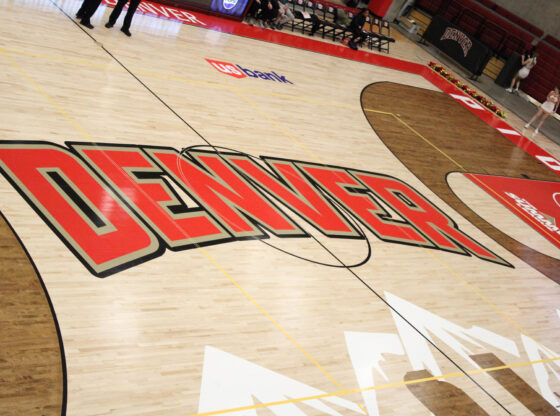Numerous departments, faculty, student groups came forward last week in support of Righteous Anger! Healing Resistance! (R.A.H.R.) protests and the #NoMorePios movement. A compilation of over 10 statements can be found here. This action came after Chancellor Jeremy Haefner’s letter to the community on Oct. 21 responded to R.A.H.R’s demands and affirmed DU’s pioneer moniker.
In his letter, Chancellor Haefner claimed the moniker ‘Pioneer’ possesses both positive and negative meanings. Many, including R.A.H.R. and its supporters, contend it has harmful connotations with settler colonialism and DU’s violent history with Native communities. However, the Chancellor defines the name as indicative of the “pioneering spirit,” and “the courage and resilience to think and act boldly; to break through barriers as explorers, innovators and frontrunners into the future.” He describes how ‘Pioneer’ and this definition represent the core mission of the school, while stating that he understands this is a very polarizing issue.
Among other programs, DU’s Department of English wrote a response letter that rejected this interpretation, stating, “Language and meaning do not work that way: one cannot unilaterally ignore a word’s origins and history, nor merely decide that a word will only mean what one wishes it to mean.”
The political science department’s letter argued that the Chancellor’s recognition of the divisive symbolism of ‘Pioneer’ is proof for why the mascot should be changed.
In a statement republished by The Clarion, the John Evans Study Committee upheld their belief the name goes against the school’s supposed values of diversity. The committee—which investigated the role university founder John Evans had in the Sand Creek Massacre and found his involvement palpable—wrote, “Given that, for years now, members of the DU Native community and many allies have respectfully requested to replace the Pioneer with a more appropriate and inclusive symbol, DU is in violation of its own stated values of diversity and inclusive excellence with the stubborn reassertion of the Pioneer as the only possible option of institutional representation.”
The committee noted that, even though Chancellor Haefner said he discussed the moniker with the DU community, many groups were left out of the decision-making process to keep the mascot. The letter argued that this reality goes against what higher education is supposed to embody: the ability to hold a public forum for groups to discuss and debate an issue.
Nancy Wadsworth, a political science professor and Chairwoman of the Evans Committee, said that it is important for faculty who support the change of mascot to speak publicly: “We would like the Board [of Trustees] to see how serious this issue is to faculty, as well as many students and staff. Faculty have more protections than staff in speaking out on a sensitive issue like this.”
Head of the French department, Jennifer Pap, signed a letter from the faculty and staff of the College of Arts, Humanities & Social Sciences (CAHSS). Pap said that she did not see herself signing as a faculty member, but instead as a member of the community who is supporting those with a cause.
Head of the Anthropology Department, Christina Kreps, stated that it is important for faculty to speak out: “I believe it is important for marginalized and underrepresented students and groups to know their concerns are being heard by persons in positions of trust and with whom they have significant relationships—relationships that can have a profound impact on their current and future lives.”
In response to these letters of support, R.A.H.R provided a statement to The Clarion. It read: “The resounding support for R.A.H.R. and our demands being shared at the Faculty Senate meeting last Friday has revived a sense of hope in our group… Now, with support coming from staff, faculty, students, alumni and community members, we may just have the momentum built to show Chancellor Haefner and the administration that the DU community is far from polarized. We are united in the true advancement of diversity and inclusion.”











